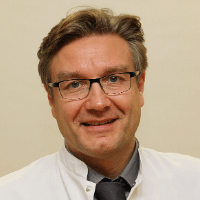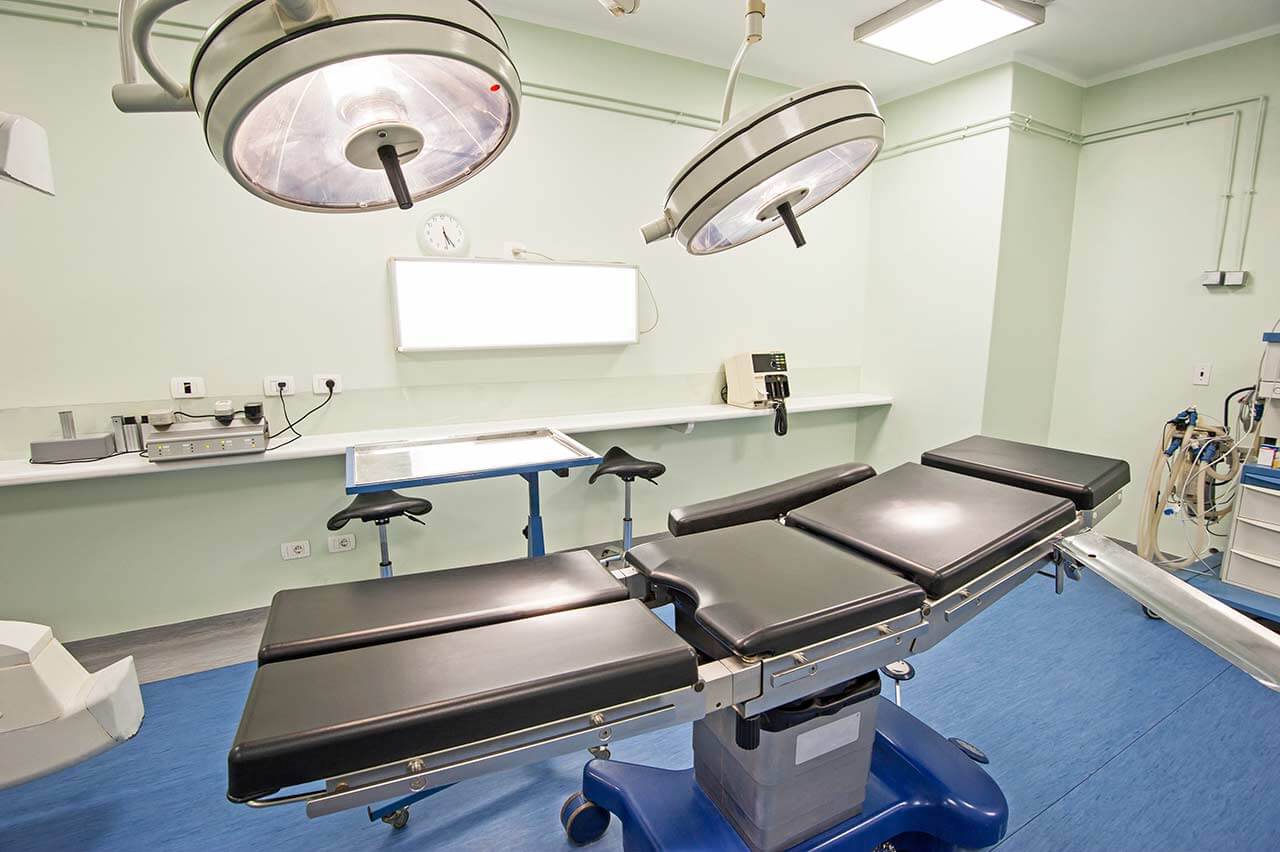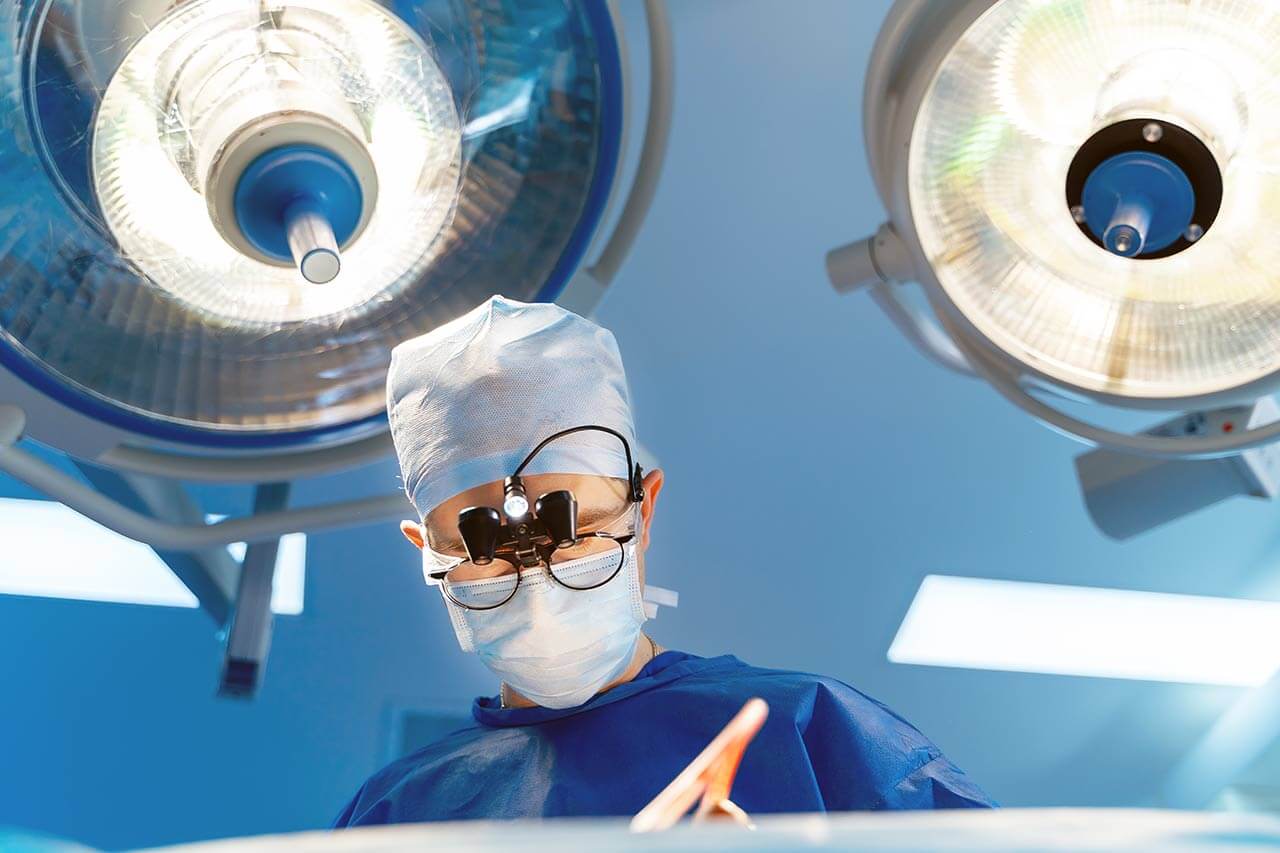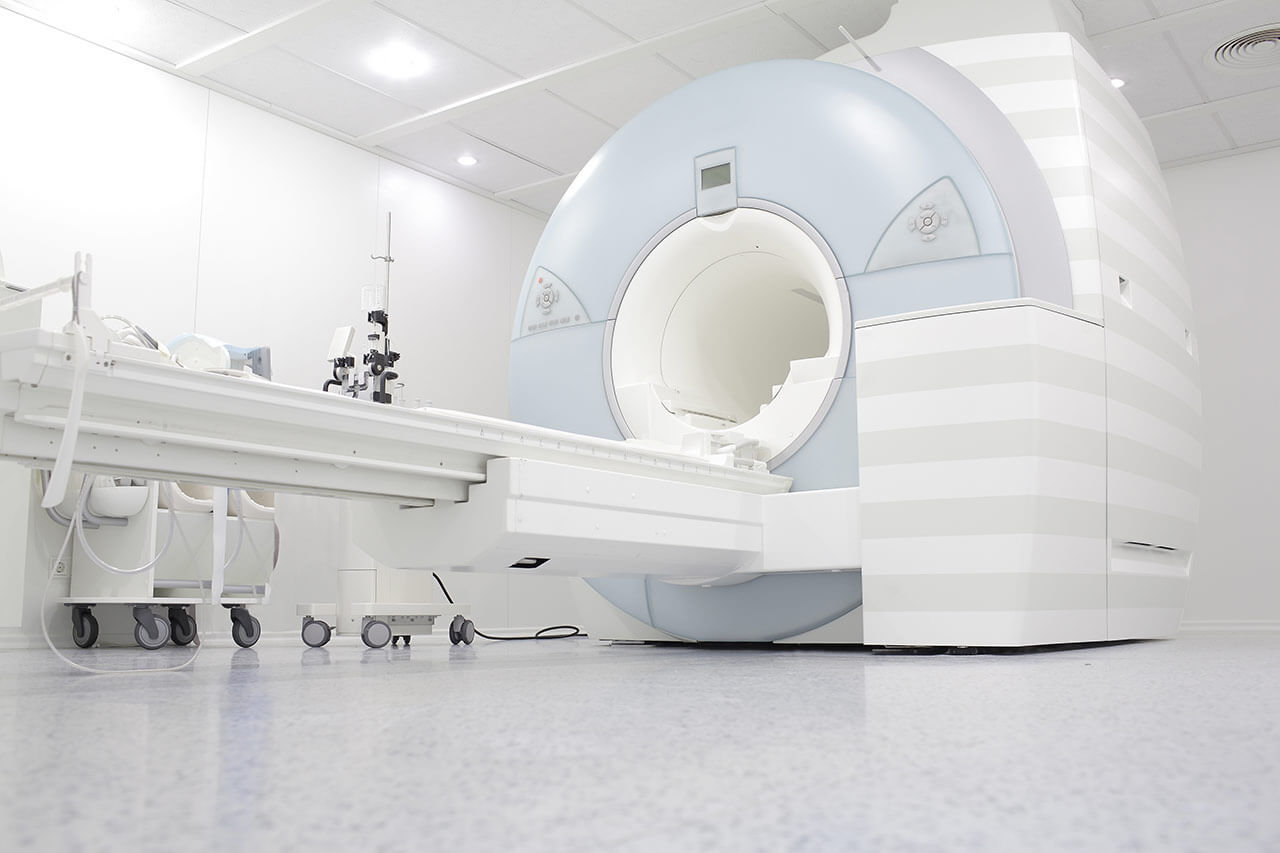
The program includes:
- Initial presentation in the clinic
- clinical history taking
- review of medical records
- physical examination
- ultrasound of the achilles tendon
- x-ray of the achilles tendon
- MRI examination (if indicated 1200 €)
- nursing services
- consultation of related specialists
- consultation of the chief physician and all leading experts
- development of individual treatment plan
Required documents
- Medical records
Service
You may also book:
 BookingHealth Price from:
BookingHealth Price from:
About the department
The Department of Adult and Pediatric Orthopedics, Trauma Surgery, Foot Surgery, Hand Surgery and Rheumatology at the Vitos Orthopedic Clinic Kassel offers the full range of diagnostic and therapeutic services in its areas of specialization. The key areas of work of the department's doctors include large joint arthroplasty, arthroscopic interventions on the knee, hip, and shoulder joints, conservative and surgical treatment of foot and hand diseases and deformities, rheumatic joint lesions, orthopedic diseases in children, and musculoskeletal injuries. The key to successful clinical practice is the professionalism and unique experience of the department's medical team, combined with the advanced infrastructure and state-of-the-art equipment. The department has 5 operating rooms equipped with the latest technology. Most surgical interventions are performed using minimally invasive techniques, due to which, in the shortest possible time, the patient is verticalized, their mobility is restored, and a pronounced pain syndrome is excluded. The department annually performs more than 4,500 surgical interventions, including especially complex ones, so the specialists at the medical facility are rightfully proud of their impressive clinical experience in the surgical treatment of orthopedic diseases. Over the years, the department has gained an excellent reputation not only in Germany but also far beyond its borders.
The department is headed by Prof. Dr. med. Guido Heers. The doctor has performed many successful surgical interventions and saved the lives of many patients. Prof. Heers has over 25 years of successful clinical experience. According to the reputable Focus magazine, the doctor ranks among the top German specialists in the field of hip surgery.
The department houses the Maximum Care Joint Replacement Center, which is certified by the endoCert certificate from the German Society for Orthopedics and Orthopedic Surgery (DGOOC). For the first time, the Joint Replacement Center was awarded the endoCert certificate in 2013, after which this certification is successfully confirmed every 3 years. The center's therapeutic options include knee, hip, shoulder, elbow, and ankle joint replacement surgery, as well as finger and toe joint replacement surgery. The department's doctors mostly treat knee and hip pathologies. In general, the department's surgeons annually perform more than 1,200 joint replacement surgical procedures, of which 1,000 are knee and hip arthroplasty. The focus of the department's medical team is always on the patient and his individual needs. During the therapeutic process, special attention is given to comprehensive diagnostics using innovative computerized systems, which contributes to the choice of the best treatment method. Whenever possible, conservative therapy is preferred, and surgery can only be prescribed in cases where clinical data unequivocally indicate the need for it.
Thanks to high-quality equipment and the unique long-term experience of the specialists in the field of joint replacement surgery, almost 100% of operations are successfully performed in the department. A special feature of the department is the fact that almost all partial and total joint replacement surgeries are performed using sparing minimally invasive techniques. Such a modern approach to treatment allows for avoiding muscle dissection and obliterating small bleeding blood vessels instead of applying tourniquets. In addition, patients receive high-quality pain management following surgery. All this allows the patient to get back on their feet on the day of surgery and immediately begin physiotherapy.
It should be noted that back in 1998, the department created an Arthroplasty Data Bank to assess the quality of implanted artificial joints and patient satisfaction. More than 20 years of research and experience confirm that the displacement of prostheses, their premature wear, and other problems with implanted joints in the department are practically excluded.
The department's team of trauma surgeons provides medical care to patients with musculoskeletal injuries. Patients are admitted around the clock. The most common clinical cases in the practice of trauma surgeons are bone fractures, joint injuries, sports injuries, multiple injuries resulting from traffic accidents, and paralysis due to musculoskeletal injuries. The first-line treatment is conservative therapy, and in the event of its ineffectiveness, the department's specialists resort to surgical treatment. During operations, surgeons tend to use low-traumatic techniques. In most cases, musculoskeletal injuries cause severe pain, so the department provides high-quality pain management. After identifying the cause of the pain syndrome, the doctor prescribes the appropriate treatment regimen for the patient. Pain relief is based on medication, physiotherapy, and occupational therapy. Interventional procedures are also possible. These involve the injection of painkillers under the guidance of X-rays or CT scans. In some cases, it is possible to alleviate the patient's condition with the help of special corsets and bandages. For patients suffering from chronic pain, the department's specialists develop a multimodal pain management regimen for the patient.
An important area of work for the department's orthopedic team is the treatment of foot diseases and deformities. The most common pathologies in this area include hallux valgus, big toe arthrosis, hammertoes and mallet toes, metatarsal fractures, ankle arthrosis, ankle fractures, heel spurs, and Achilles tendon injuries. The department's doctors have a variety of surgical and conservative methods in their arsenal to treat food problems. Conservative treatment includes pain management, physiotherapy, occupational therapy, orthopedic insoles, etc. Surgical options include minimally invasive and arthroscopic interventions, ankle cartilage transplants, and other treatment options. It is worth noting that the department's foot surgery focus was awarded the prestigious DAF certificate from the German Foot and Ankle Association.
Infants, young children, and adolescents can also receive high-quality medical care in the department. Orthopedic diseases in children are treated by a specially trained team of experts who are well aware of the characteristics of the growing body and the needs of children. One of the key tasks is the treatment of hip diseases, in particular hip dysplasia in children. The area of expertise also includes the treatment of Perthes disease, slipped capital femoral epiphysis, foot deformities (for example, clubfoot or hallux valgus flat foot), and axial and rotational deformities of the lower extremities (for example, X-shaped and O-shaped deformities). If a child is indicated for surgical treatment, it is usually performed using low-traumatic techniques.
The department's range of medical services includes:
- Orthopedics
- Conservative and surgical treatment of hip diseases
- Conservative therapy: drug pain management, ultrasound-guided targeted injection therapy, and physiotherapy
- Partial and total hip arthroplasty, including revision surgery
- Hip arthroscopy
- Hip corrective osteotomy
- Cartilage cell transplant
- Conservative and surgical treatment of knee diseases
- Conservative therapy: drug pain management, ultrasound-guided targeted injection therapy, and physiotherapy
- Partial and total knee arthroplasty, including revision surgery
- Knee arthroscopy
- Cruciate ligament plastic repair
- Anatomical reconstructions for patellar instability
- Cartilage cell transplant
- Conservative and surgical treatment of shoulder diseases
- Conservative therapy: drug pain management, ultrasound-guided targeted injection therapy, and physiotherapy
- Partial and total shoulder arthroplasty, including revision surgery
- Shoulder arthroscopy
- Reconstructive interventions for injuries of shoulder muscles and tendons
- Shoulder stabilization surgery
- Cartilage cell transplant
- Conservative and surgical treatment of elbow diseases
- Conservative therapy: drug pain management, ultrasound-guided targeted injection therapy, and physiotherapy
- Partial and total elbow arthroplasty, including revision surgery
- Muscle repair and correction of the damaged elbow tendons
- Reconstruction of fresh and chronic fractures
- Minimally invasive treatment for carpal tunnel syndrome
- Minimally invasive treatment for epicondylitis
- Arthroscopic removal of free bodies from the elbow joint
- Arthroscopic removal of bone fragments from the elbow joint
- Conservative and surgical treatment of orthopedic diseases in children
- Conservative and surgical treatment of hip diseases
- Treatment of hip dysplasia under ultrasound guidance
- Treatment of hip dysplasia with a special splint
- Clinical examinations and X-ray scans for the management of young children with hip dysplasia
- Conservative and surgical treatment of foot deformities
- Clubfoot correction
- Plaster therapy by the Ponseti technique
- Correction of planovalgus foot deformity
- Surgical correction of axial and rotational deformities of the lower extremities
- Conservative and surgical treatment of hip diseases
- Conservative and surgical treatment of hip diseases
- Trauma surgery
- Conservative and surgical treatment of injuries of any severity
- Medical care for acute pain syndrome caused by musculoskeletal injuries
- Treatment of bone fractures
- Treatment of joint injuries
- Treatment of paralysis caused by musculoskeletal injuries
- Treatment of sports injuries: muscle and tendon ruptures, bone fractures, and cartilage damage due to excessive physical exertion
- Conservative and surgical treatment of injuries of any severity
- Foot surgery
- Conservative and surgical treatment of foot diseases and deformities
- Conservative treatment of foot mobility disorders with physiotherapy and occupational therapy
- Surgical correction of foot deformities
- Conservative and surgical treatment of foot fractures
- Surgical correction of toe deformities: hallux valgus, hallux rigidus, and hammer toes and mallet toes
- Minimally invasive treatment for tarsal tunnel syndrome
- Partial and total ankle arthroplasty, including revision surgery
- Ankle arthroscopy (for example, loose body removal)
- Cartilage cell transplant for osteochondritis dissecans
- Corrective interventions on tendons
- Conservative and surgical treatment of foot diseases and deformities
- Hand surgery
- Conservative treatment of hand mobility disorders with physiotherapy and occupational therapy
- Conservative and surgical treatment of finger and wrist fractures
- Conservative and surgical treatment of finger joint arthrosis
- Conservative and surgical treatment of arthrosis of the saddle joint of the thumb
- Minimally invasive treatment of carpal tunnel syndrome
- Hand and finger arthroplasty, including revision surgery
- Wrist arthroscopy
- Rheumatology
- Conservative and surgical treatment of rheumatic diseases
- Minimally invasive interventions on the hand and foot for rheumatic lesions
- Large and small joint arthroplasty, including arthroplasty for complex injuries and axial deformities
- Treatment of small joint arthritis with "bioprostheses"
- Local therapy for affected joints with cortisone injections
- Infusion procedures with basic biological preparations
- Inpatient treatment for patients with rheumatic fever associated with severe comorbidities (for example, diabetes mellitus)
- Selection and recommendations for the use of orthoses
- Conservative and surgical treatment of rheumatic diseases
- Other medical services
Curriculum vitae
Prof. Dr. med. Guido Heers received his medical education at the Ruhr University Bochum, the University of Innsbruck, and the University of Rome. The doctor completed his internship at the Trauma Surgery Clinic in Duisburg, followed by the post of Assistant Physician at the Orthopedic Clinic in Hamburg. Prof. Heers spent a year at the Mayo Clinic in the United States, where he was involved in research activities. After returning to Germany, the doctor was board certified in Orthopedics and Trauma Surgery. In 2000, the doctor began working in the Department of Orthopedics at the University Hospital Regensburg, where he worked for a long time as a Senior Physician, and, in 2013, was appointed Extraordinary Professor. In 2009, he took up a position at the Rheumatology Center in Bad Abbach (at that time, the center operated under the auspices of the Bavaria Red Cross). Now the center is called the Asklepios Hospital Bad Abbach. While working at the hospital, the doctor also worked for eight months as a Trauma Surgeon at the Hospital Brothers of Mercy Regensburg.
On January 1, 2018, Prof. Heers took up the position of the Head Physician of the Department of Adult and Pediatric Orthopedics, Trauma Surgery, Foot Surgery, Hand Surgery and Rheumatology at the Vitos Orthopedic Clinic Kassel. In addition, the doctor has permission to conduct advanced training courses in Orthopedics, Trauma Surgery, and Special Orthopedic Surgery. In July 2019, he also assumed the position of the Medical Director of the Vitos Orthopedic Clinic Kassel.
Additional Qualifications
- Hand surgery.
- Sports medicine.
- Special orthopedic surgery.
- Orthopedic rheumatology.
Photo of the doctor: (c) Vitos Orthopädische Klinik Kassel
About hospital
The Vitos Orthopedic Clinic Kassel is a specialized medical facility where patients can receive top-class diagnostics and conservative and surgical treatment for musculoskeletal diseases, including spinal pathologies. The clinic was founded more than 100 years ago, so it is proud of its rich and successful clinical experience and also honors its long traditions. Before the clinic first opened its doors to patients, its building was a sanatorium and health complex that provided medical care to the wounded during the First World War. Today, the clinic enjoys a reputation as one of the best orthopedic centers in Germany and Europe. 164 beds are available for patients' hospital stays. In June 2021, a new clinic building was put into operation, so now patients are accommodated in comfortable rooms that correspond to the level of a high-class hotel.
The clinic annually admits about 5,000 inpatients for diagnostics and treatment, and more than 17,000 patients receive medical care on an outpatient basis. The health of patients is in the safe hands of a medical team of more than 330 employees, including specially trained nursing staff. All specialists at the medical facility strive to provide the most effective and, at the same time, sparing treatment. Doctors always devote enough time to personal communication with the patient. They talk about possible treatment options and expected therapeutic results, and they answer the patient's questions. Particular attention is paid to supporting the patient during treatment because a positive attitude plays an important role in the success of therapy.
The clinic's team of orthopedists has exceptional professional skills in surgical treatment. The specialists have at their disposal five high-tech operating rooms, in which they annually perform more than 4,500 operations of varying complexity. In addition, the clinic's doctors have a perfect command of the latest conservative treatments, which, in some cases, may help avoid a surgical procedure. In October 2020, a specialized department was opened in the clinic, which provides pain management, manual therapy, and naturopathic treatment. The clinic also treats young patients with musculoskeletal diseases.
The Vitos Orthopedic Clinic Kassel has all the necessary technical and human resources available to provide top-class treatment for common and rare cases of orthopedic pathology. The medical facility has modern diagnostic rooms, operating rooms with special equipment for arthroscopic and minimally invasive operations, and treatment rooms for manual therapy. The head physicians of the clinic's departments are included in the ratings of top specialists in their areas of competence according to the prestigious medical magazine Focus, so patients can be sure that they trust their health to true professionals in their field.
Photo: (с) depositphotos
Accommodation in hospital
Patients rooms
The patients of the Vitos Orthopedic Clinic Kassel live in comfortable single and double rooms with a modern design. Each patient room has an ensuite bathroom with a shower and a toilet. The furnishings of a standard patient room include an automatically adjustable bed, a bedside table, a wardrobe for storing clothes and personal belongings, and a table and chairs for receiving visitors.
If desired, patients can be accommodated in single enhanced comfort rooms. These rooms are more spacious and have an exquisite design, corresponding to the level of an upscale hotel.
Meals and Menus
The patients of the clinic are offered tasty and healthy meals three times a day: buffet breakfast, lunch, and dinner. If necessary, the patients can be offered either a dietary or individual menu.
Further details
Standard rooms include:
Religion
On the first floor of the clinic, there is a prayer room where patients can stay alone to pray at any time of the day. Catholic services are also held in the prayer room once every two weeks.
Accompanying person
Your accompanying person may stay with you in your patient room or at the hotel of your choice during the inpatient program.
Hotel
You may stay at the hotel of your choice during the outpatient program. Our managers will support you for selecting the best option.





